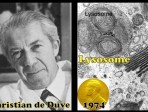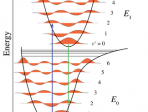 01:02:00
01:02:00
Electronic Spectroscopy and Franck Condon Factors
Electronic spectroscopy and Franck Condon factors. The discovery of the spectrum of H3+ in the laboratory and in the atmosphere of Jupiter. Interstellar chemistry: Ion molecule reactions in space, grain surface catalysed processes and reactions in ci....
More details | Watch now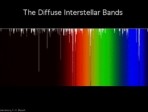 00:56:00
00:56:00
Radio Astronomy – Resolution Issues
Radio astronomy - resolution issues. The detection of long carbon chain molecules by radio astronomy. The conjectures on the origin of the chains in space and their possible relationship with the Diffuse Interstellar Bands that initiated the experime....
More details | Watch now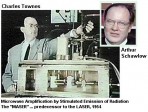 00:44:00
00:44:00
Masers and Lasers
Charles Hard Townes received the Nobel Prize for Phyiscs in 1964 'for fundamental work in the field of quantum electronics, which has led to the construction of oscillators and amplifiers based on the maser-laser principle' He was award half of the P....
More details | Watch now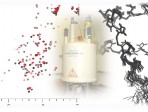 00:29:00
00:29:00
Nuclear magnetic resonance and macromolecules
Kurt Wurthrich was awarded a Nobel Prize in Chemistry in 2002 'for his development of nuclear magnetic resonance spectroscopy for determining the three-dimensional structure of biological macromolecules in solution' He now shares his life between his....
More details | Watch now 00:42:00
00:42:00
Atmospheric Chemistry
In this interview Sherwood Rowland talks about Ozone depletion and the effect of CFCs on Ozone and Global Warming (Greenhouse Warming where infrared radiation is trapped). He explains the chemistry of Ozone depletion and the history of what led to th....
More details | Watch now 00:42:00
00:42:00
Climate change
This presentation gives Rowland's current (2006) opinion/impression of Global Warming. He says that the first legislated discussion that he remembers in the US senate on the Global Warming was in 1986 and the looming problem and whether governments s....
More details | Watch now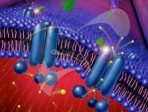 00:29:00
00:29:00
Structural and Mechanistic Studies of Ion Channels
In this interview MacKinnon, Nobel Prizewinner in Chemistry, 2003, discusses Max Perutz and then his own research. He says his course into science was quite sequacious and he really didn't start science until he was about 30 as he had a strong intere....
More details | Watch now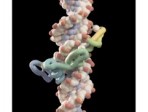 01:00:00
01:00:00
Crystallographic electron microscopy
Born in Lithuania, Aaron Klug, Nobel Prize in Chemistry, 1982, tells us about his early life and education growing up in Durban, South Africa. He developed an early interest in physiology and anatomy but did not find his teacher very inspiring and ga....
More details | Watch now 00:28:00
00:28:00
Extremely Fast Chemical Reactions
This interview starts with Eigen (Nobel Prize in Chemistry, 1967) talking about his early work for his PhD thesis on fast reactions and measuring the specific heat of heavy water. He says that light water had already been measured in classical chemis....
More details | Watch now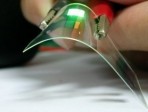 00:40:00
00:40:00
Discovery and development of conductive polymers.
Alan MacDiarmid was the first New Zealand born and educated Nobel Prize (Chemistry, 2000) winner since Maurice Wilkins in 1962. In this interview MacDiarmid talks about the science that he was awarded the Nobel Prize for, the discovery of the first c....
More details | Watch now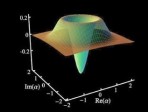 00:33:00
00:33:00
The Physics of Light
When asked how does he think about the problems of the physics of light, Glauber says that it is an off-shoot of particle physics. He says that he has mainly worked in nuclear physics, quantum electro-dynamics and the quantum theoretical version of M....
More details | Watch now